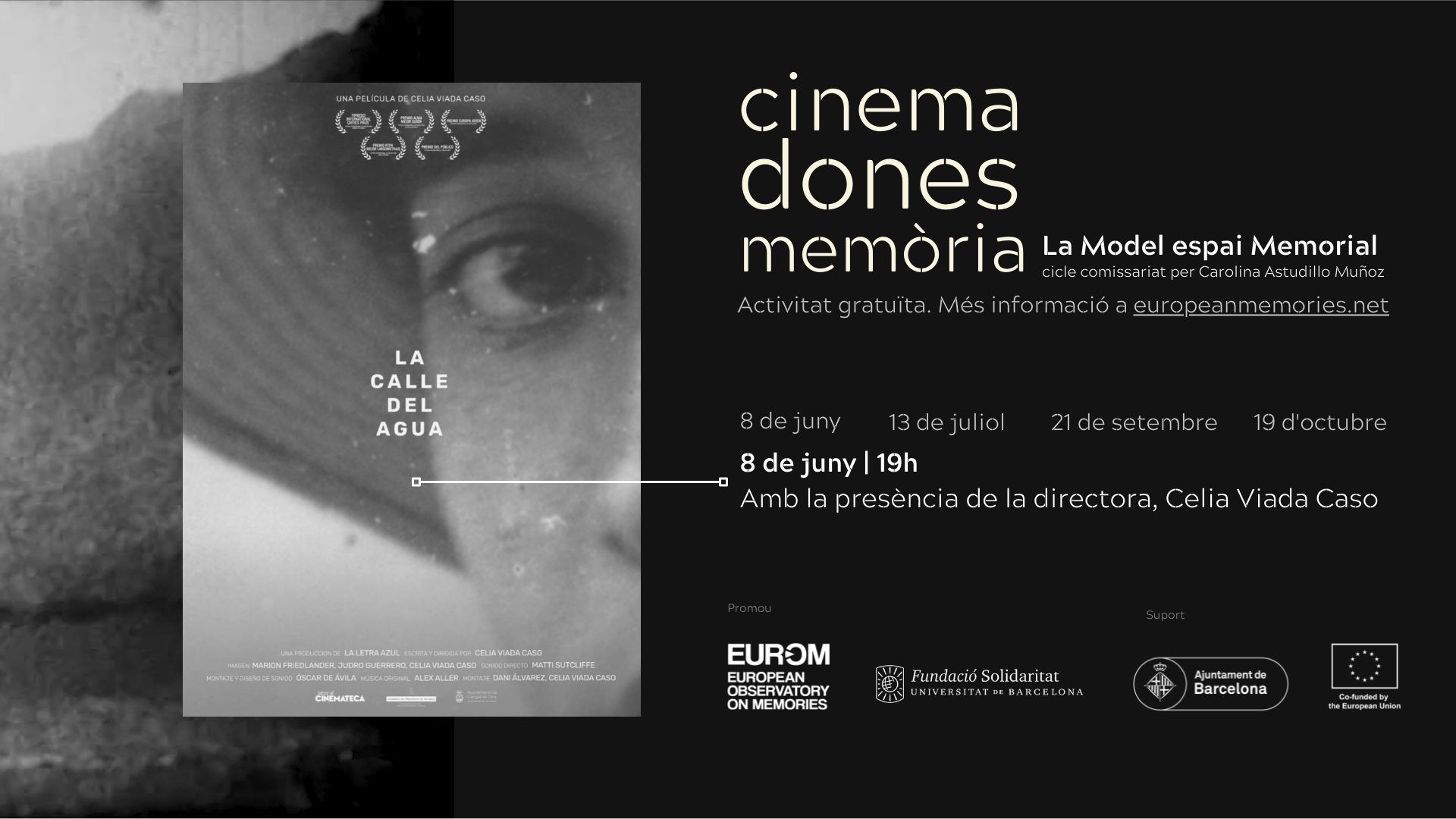- The EUROM and the Department of Democratic Memory of Barcelona promote a cycle of movies, women, and memory under the curatorship of the filmmaker Carolina Astudillo;
- The selection of films highlights the cinematic views of women directors on the different forms of remembrance: the memory of the body, the memory of images, the memory of gestures, the memory of sound;
- The four sessions will take place in June, July, September, and October 2022 at the former prison la Model and will count on the presence of the directors;
- The first screening is dedicated to “La Calle del agua” (2020), by Celia Viada Caso, and will take place on June 8 at 7 p.m, followed by a conversation between her and Carolina Astudillo.
June 08, 2022 | 7pm
La Modelo espai Memorial
Free entrance, no registration required.
Synopsis
Benjamina Miyar (1888 – 1961) lived an unusual life in her house in Calle del Agua, at the foot of the Picos de Europa mountains. A photographer and watchmaker for over 40 years, she was also part of the anti-Franco resistance. Her life and work disappeared after her death. La Calle del Agua is the encounter between two women who shared the same place at different times, the outline of a portrait that emerges from what is remembered and what has vanished. (Filmmaffinity)
About the filmmaker
Celia Viada Caso (Madrid, 1991) is a filmmaker and visual anthropologist. He holds a degree in Anthropology and Audiovisual Communication from the University of Goldsmiths in London and a Master’s Degree in Creative Documentary from UPF Barcelona. His works explore the languages of non-fiction and experimental cinema. His first feature film “La Calle del Agua” (2020) won seven awards at its premiere at the Gijón International Film Festival (FICX 2020), including the FIPRESCI Award for Best Direction and the Audience Award. He is currently developing the short film “Un verano sin pájaros“.
LA CALLE DEL AGUA _ ENGLISH TRAILER from celia c on Vimeo.
Upcoming sessions
July 13
Short films session
Una revuelta sin imágenes (A revolt without images) by Pilar Monsell searches for the traces of the bread riot, one of the most important and unknown uprisings in the history of Spain, which was led by women in the city of Córdoba in May 1652.
From a photograph hanging on the wall of a family home, the Galician Xacio Baño delves into the story of an anonymous soldier who died in the Spanish Civil War, penetrating the Abyssal Waters, a metaphor for oblivion and memories’ gray areas.
The forgotten and discarded images of a film banned during the Franco regime are recovered in Descartes directed by Concha Barquero and Alejandro Alvarado
September 21
El pacto de Adriana (Adriana’s Pact) by Chilean Lissette Orozco delves into a deeply uncomfortable and painful personal story. In this search process, the director embarks on a journey through hidden and invisible events of family intimacy.
October 19
The programme for this date will be announced soon!

